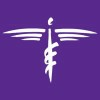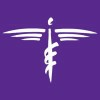Federal grants spur the creation of area health education centers good for Iowans, good for health care students
(Des Moines, IA) – Des Moines University and the University of Iowa School of Nursing are embarking on projects to improve the availability of health care in Iowa’s rural areas. Through federal grants the schools will create a total of seven area health education centers (AHEC) as part of the National AHEC organization.
Des Moines University (DMU) received a $1.9 million dollar grant from the U.S. Department of Health and Human Services – Health Resources and Services Administration (HRSA). This grant matches the money DMU will put toward the school’s $3.8 million dollar three-year project to create four AHECs. The DMU organized centers will focus on counties north of I-80 and will likely be based in Carroll, Mason City, Waterloo and in Des Moines at Broadlawns Medical Center.
DMU’s project will involve all three University colleges – the College of Osteopathic Medicine, the College of Podiatric Medicine and Surgery and the College of Health Sciences – to involve D.O., D.P.M., PA, physical therapy and public health students.
“We are thrilled with this opportunity and look forward to improving the state of health care in Iowa,” said David Plundo, D.O., associate dean for clinical affairs at Des Moines University. Dr. Plundo will be the DMU AHEC project director.
The University of Iowa College of Nursing also received a $2.6 million dollar matching HRSA grant toward their three-year plan to create three AHECs.
Kathleen Hanson, Ph.D., RN, interim associate dean for academic affairs at the University of Iowa College of Nursing, said, “The University of Iowa’s AHECs will focus on the counties south of I-80, from the Mississippi to the Missouri River. The College of Nursing is one of only two nursing colleges to receive AHEC funding.”
Dr. Hanson will be the University of Iowa AHEC project director. She said their approach is also interdisciplinary and involves the colleges of dentistry, medicine, pharmacy and public health. This funding encourages the development of practice models that bring health professionals together to deliver coordinated quality health care.
AHECs essentially create a network to recruit and retain health care workers in rural areas, these centers will address workforce and medical shortages in Iowa. Each AHEC will recruit Iowans to health care careers, by educating students as young kindergarten age about career options. The centers will provide more clinical training sites for students and create more continuing education opportunities for current practitioners. Until now, Iowa was one of only four U.S. states without an AHEC.
Dr. Plundo said the first year, for the DMU program, will be spent assessing specific needs in each area, hiring staff, arranging locations and compiling the regional governing boards. The first center will be operating by the end of the first year with all four up and running by the end of the third year.
At the end of the three years, Dr. Hanson said, all three of their centers will be operating as well.
A long-term initiative, each AHEC will use University resources to enhance local community efforts in addressing needs specific to each location. By establishing a partnership with the local community, hospitals and clinics, the AHEC will augment current activities in each area The universities will provide oversight for the centers but each will be governed by a local board of advisors.

